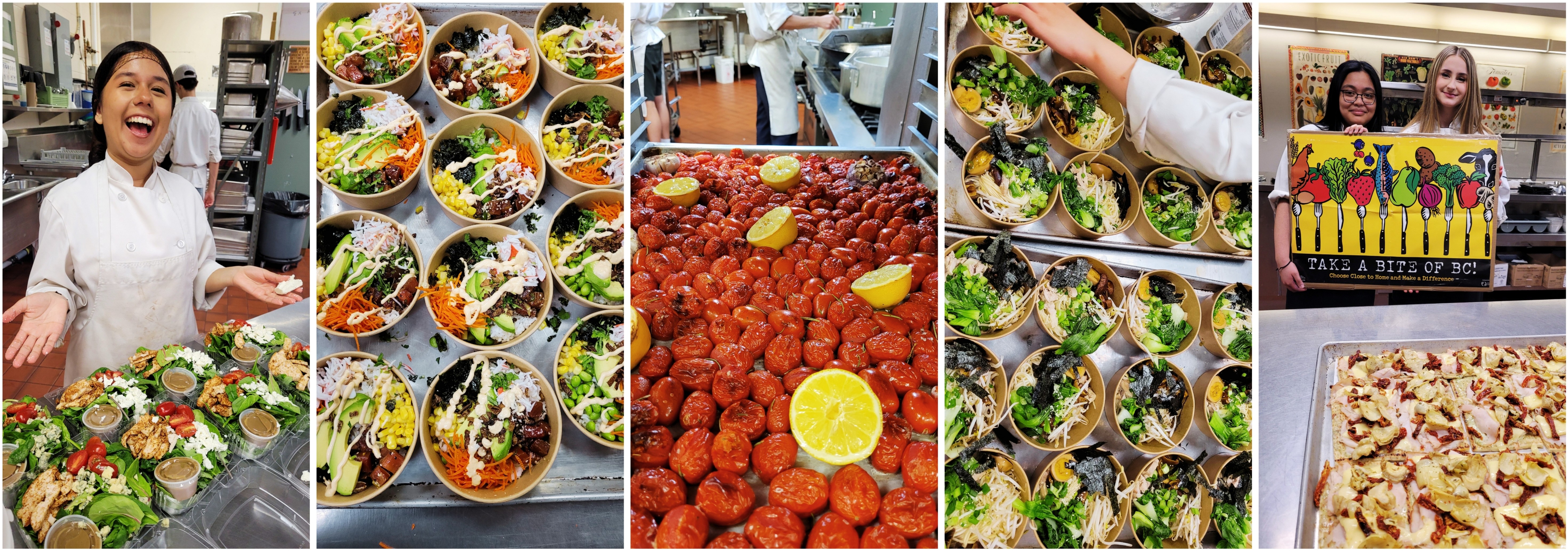
Teacher Champion - Eric Schofield
In this issue of our BCAITC Teacher Champion series, we profile BC teacher Eric Scofeild. Discover his passion for educating students about BC agriculture, food, and the environment.
Q: What school do you teach? A:I teach at Stelly’s Secondary School in Saanichton.
Q: What grade(s) do you teach? A: I currently teach Grades 9–12.
Q: How and when did you first learn about BCAITC? A: I first came across BCAITC in 2012 after receiving a Chapman & Innovation Grant from UBC to develop and facilitate a Food Literacy course. While we didn’t directly use BCAITC’s programs and resources at the time, their mission and resources were part of our discussions. I was inspired by their commitment to agriculture & food education and have followed their work ever since.

Q: How long have you been teaching students about BC agriculture and food? A: I have been teaching about BC agriculture and food since 2012, during my time I was completing my Human Geography degree working with the Britannia Homework Club. My passion deepened even more in 2014 when I became an accredited “Foods” teacher in the Surrey school district.
Q: What are the most important things that you want your students to learn about BC agriculture and food? A: I want my students to acquire an appreciation for BC farmers and food workers, and to understand the dynamic, often demanding processes that bring food from farm to table. It’s important they experience the value of eating food that’s grown close to home and harvested at peak ripeness. Through programs like Take a Bite of BC, we’ve had the opportunity to work with outstanding local ingredients, rich in both flavour and nutrition. In class, we aim to let these fresh foods speak for themselves by highlighting their natural textures and tastes.

Q: BCAITC has over 500 free downloadable resources including lesson plans, activities, videos, recipes, and more! What is your favourite BCAITC resource and why? A: I really like the “Fresh Stories” because they offer a succinct and engaging way to dive into the many fascinating aspects of our food system. They’re easy to use and spark great conversations with students. I also really like Chef Randle’s videos, both the food skills tutorials and those focused on specific BC products. They bring culinary learning to life in an accessible and inspiring way.
Q: What is your favourite BCAITC program and why? A: Take A Bite of BC is my favourite BCAITC program! It gives us access to a wide range of high-quality, locally grown ingredients like duck, oysters, blueberries, cheese, and more, that would otherwise be difficult to include due to budget constraints. What I appreciate most is being able to tell our school community that these amazing ingredients are donated by BC farmers. It becomes a powerful learning moment, we honour their generosity by using every part of the ingredient to create delicious, nutritious meals and baked goods while learning about the value of local food and zero waste.

Q: Describe an agriculture or food-based project/program you have implemented in your classroom/school recently. A: Over the past two years, my students have been preparing 6 litres of vegan soup each week to donate locally as a way of supporting those experiencing food insecurity. This project not only fosters empathy and community connection but also challenges students to think creatively about how to use BC-grown produce in nutritious and accessible ways. It’s become so popular that students now actively look forward to soup-making days and some even help deliver the soup alongside staff members. It’s a meaningful hands-on experience that feeds both minds and hearts. A true win-win-win!
Q: Do you have any advice for other educators on how to integrate agriculture and food education into their curriculum? A: I’ve said for a long time now that “food is an engagement agent.” You can take any ingredient or dish and unpack it to explore a world of learning, from science and geography to culture, history, and sustainability. In my view, food systems should be considered a core competency in BC education, not just for developing food literacy and skills, but because food is an integral part of our society, communities, and daily lives.
Food belongs in the classroom because it’s a tangible way to connect students to nature, culture, and each other. A mentor of mine reminded me: “When we eat, we’re connecting with nature”. I encourage all educators to move beyond using food only for special occasions. Instead, use it as a lens for “character education,” an entry point for meaningful conversations, community building, and critical thinking. Let food be a bridge between curriculum and connection!
About the Teacher Champion Series: This monthly BCAITC series features BC teachers and school staff who are passionate about providing agriculture and food education to K-12 students. For more information, contact BCAITC Communications Coordinator, communications@aitc.ca.
